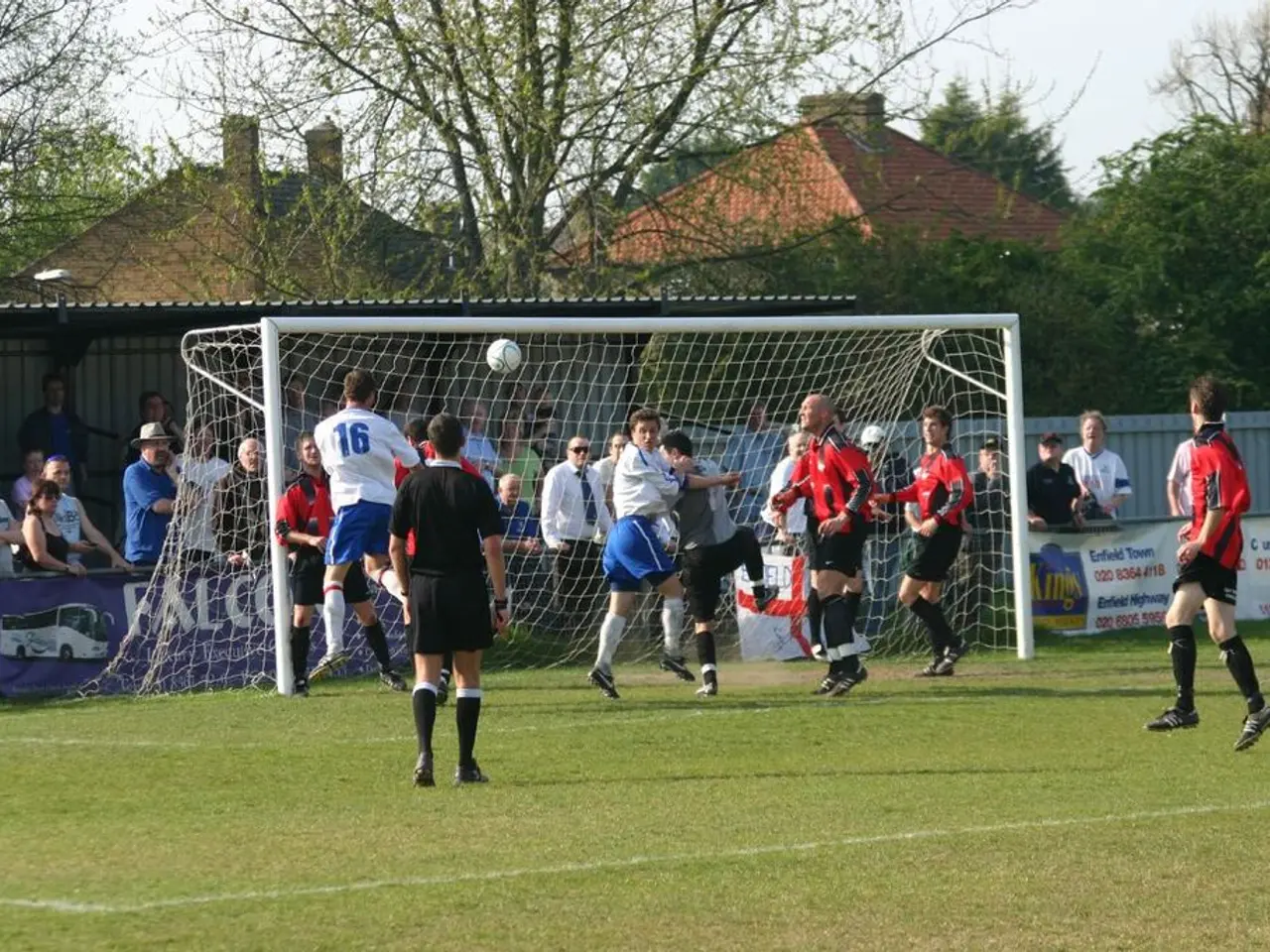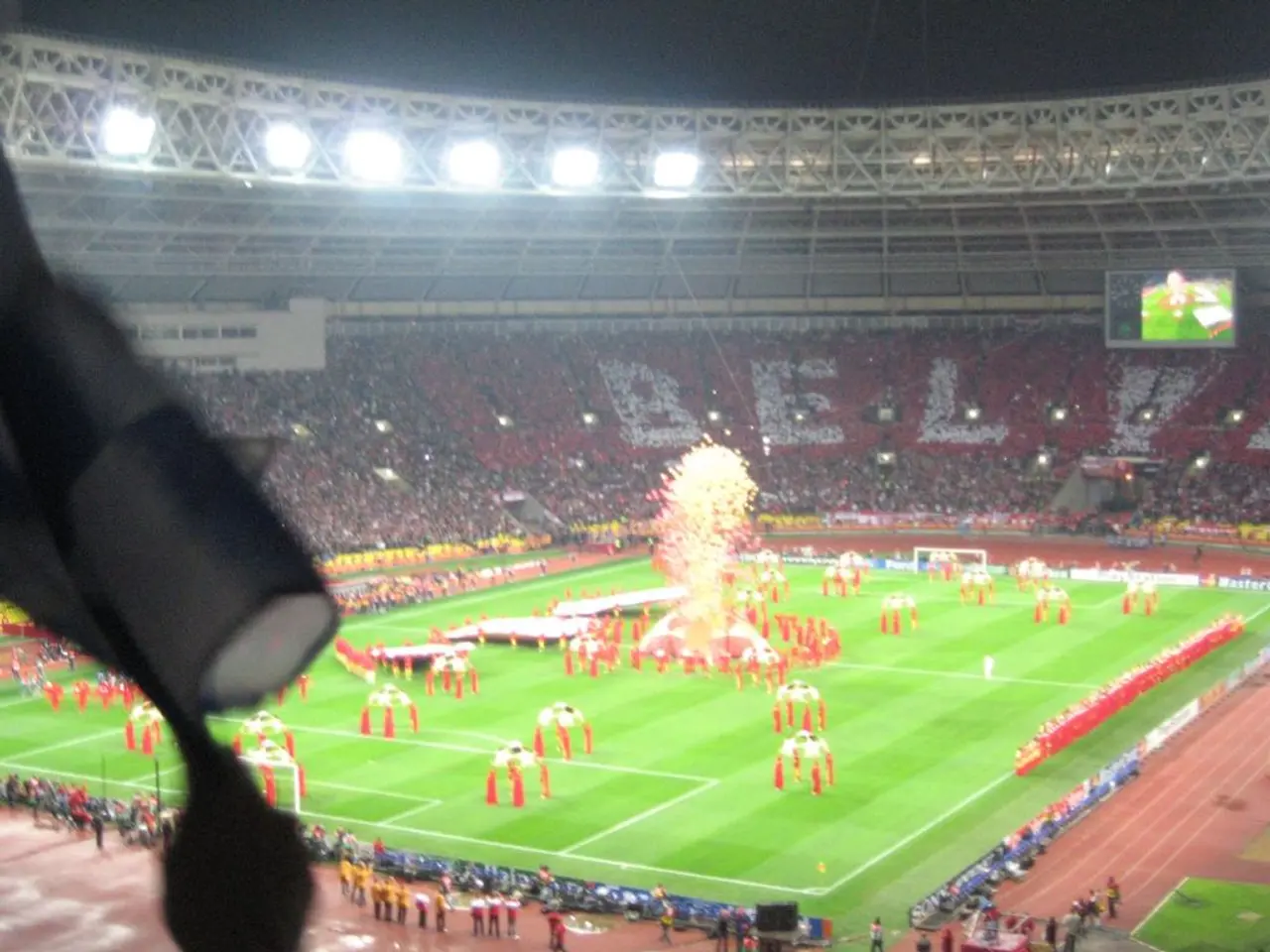If the stars fail to deliver a sufficient performance tomorrow
In the world of football, the development of young talent is a topic of great importance. Recently, prominent figures in German football have been advocating for a separate U21 league to enhance the growth and progression of promising players.
Christian Streich, former coach of SC Freiburg, has been a vocal advocate for this change. He emphasizes that players should switch to a big club when they have the perspective, but agents often don't agree with this. According to Streich, young players should play regularly and perform well in Freiburg, Stuttgart, or Bremen to be invited to the national team.
Jürgen Klopp, the renowned Liverpool manager, shares this sentiment and is pushing for the creation of a separate U21 league. He believes that extending training time will create a new player market and coach market.
The proposed league aims to replicate the intensity and challenges of first-team matches, helping young talents adapt more effectively. By playing against 20 different opponents, players will be exposed to a wider range of tactical and physical challenges, aiding their development.
Removing the pressure of relegation from the equation allows clubs to focus on growth rather than results, fostering long-term progression. The single-division format also enables adding fixtures against senior or international teams, expanding learning environments beyond the league itself.
Such a setup would support coaching and structural growth, contributing not only to player skills but also to coaching development and organizational strategies. Together, these factors create a more supportive and effective pathway for transitioning academy players into professional football.
The benefits of a separate U21 league are evident in countries like Spain, France, Portugal, and the Netherlands, where successful U21 league systems have been in place for some time. In France, for instance, there is a program called "Discovering Young Talents" that accompanies children from the age of 13 on their way to professional sports and the French national teams.
Notable clubs like Bayern Munich already have a U23 team and a campus for the pros and future stars of the record champion. Bayern's sporting director Max Eberl stated that they now have players with a real perspective, but they must bring their performance through training to earn playing time.
RB Leipzig is another club known for receiving young foreign players, such as Dayot Upamecano, Christopher Nkunku, and Nordi Mukiele, who were all trained in France.
Despite the potential benefits, not all German clubs have their own U23 team. Roger Schmidt, former coach of PSV Eindhoven and Benfica Lisbon, believes this could be a gap in opportunities for young players in Germany, compared to countries like Spain and France.
One young star who has already benefited from this system is Aleksandar Pavlović, who played approximately 1500 minutes out of a possible 3060 in 34 Bundesliga games last season, and around 300 in the Champions League. Pavlović has already made it to the national team, despite missing several games due to a knee injury and Pfeiffer's gland fever. He is currently out again, this time with a fracture of the eye socket.
Julian Nagelsmann, the national coach, had earlier hinted at the issue, without criticizing Manchester City coach Vincent Kompany. The implementation of a separate U21 league could potentially bridge this gap and provide a more supportive environment for the development of German talent.
In conclusion, the proposed separate U21 league in football aims to benefit talent development primarily by providing young players with a competitive environment that closely simulates first-team football, fostering their transition to senior professional levels. This setup allows clubs to prioritize development without the pressure of relegation, offers more varied and frequent competitive matches, and supports customizable growth opportunities such as matches against senior teams and international opponents. The benefits of such a league are evident in countries with successful U21 league systems and could potentially improve a club’s talent pipeline and competitive sustainability over time.
In light of the importance placed on nurturing young talent in football, Christian Streich and Jürgen Klopp have vocalized their support for the establishment of a separate U21 league, believing it will boost the development of promising players. Such a league seeks to emulate the challenges of first-team football, thereby better preparing youthful talents for the professional arena and aiding their transition.







